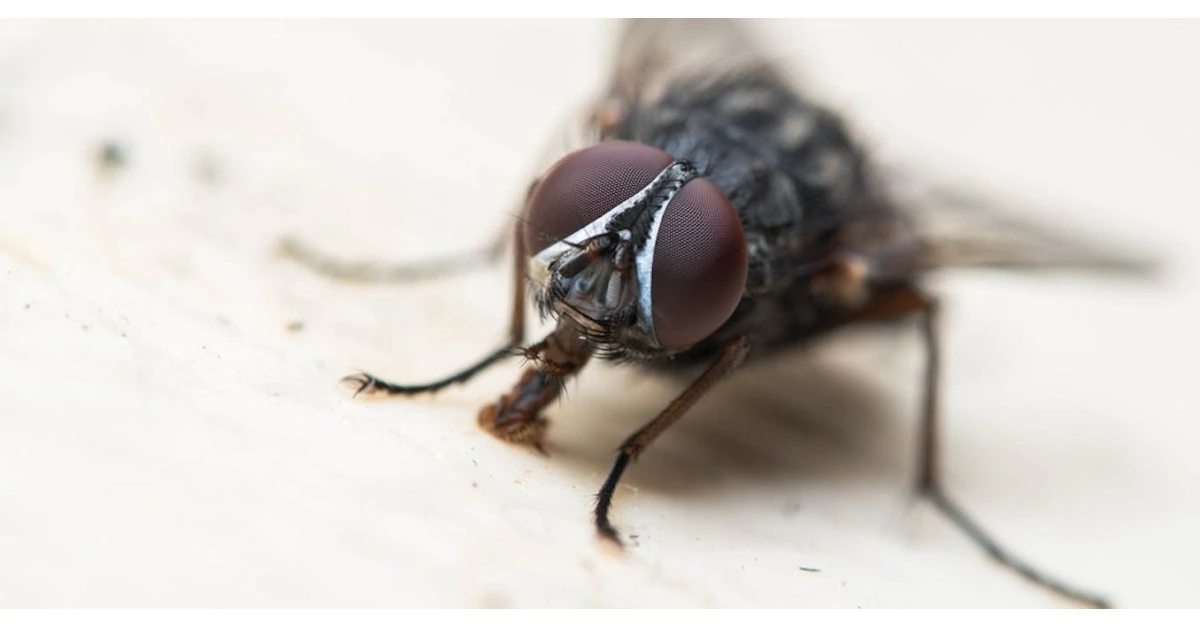
NIGERIA – Flies in hospital wards may be spreading drug-resistant bacteria among patients, posing a serious health risk, according to new research.
Scientists from the Ineos Oxford Institute for Antimicrobial Research (IOI) found that flies collected from hospitals in Nigeria carried bacteria resistant to key antibiotics, including last-resort treatments.
This raises concerns about antimicrobial resistance (AMR), a growing global threat that could claim over 39 million lives by 2050.
The study involved collecting 1,396 flies from eight hospitals across six Nigerian cities using sticky traps.
Tests revealed that these flies carried 17 bacterial species, including Staphylococcus aureus, a common cause of hospital-acquired infections. Many of these bacteria had genes linked to AMR.
While the study could not prove that flies were directly spreading bacteria to patients, the findings are concerning.
Dr. Chioma Achi, the project lead, described the results as “very worrying,” stating that flies could act as vectors for antimicrobial resistance, especially in tropical low- and middle-income countries where they are abundant.
“Flies are coprophagic – they eat faeces, they eat manure,” she explained. “Those who have an infection pass it in the faeces, the flies take it up and can perch on hospital surfaces, food, or environments that people touch.” This process could contribute to the spread of infections.
Dr. Kirsty Sands, a scientific lead at IOI and co-author of the study, added, “Flies circulating in hospital wards could pose a threat to patients who are vulnerable to infection, especially as flies commonly land on patients.”
Nigeria ranks 20th out of 204 countries for AMR-related deaths, with 263,400 deaths in 2019. The new study builds on earlier research conducted in Pakistan, which found that ants, spiders, flies, and cockroaches in hospitals carried multidrug-resistant bacteria.
Some of these bacteria were linked to patients’ surgical site infections, suggesting a direct role in hospital-acquired infections.
The Nigerian study highlights the need to consider the connection between human and environmental factors when tackling AMR.
The researchers plan further studies to determine whether insect control measures, such as window screens and bed nets, can reduce bacterial transmission in hospitals.
A growing concern
AMR is a growing concern in healthcare. Overuse and misuse of antibiotics have led to the emergence of drug-resistant bacteria, making common infections harder to treat.
With over 70% of antibiotics used in livestock, resistant bacteria can spread widely through food and the environment.
Hospitals are especially vulnerable to AMR, with bacteria such as carbapenem-resistant Enterobacteriaceae (CRE) thriving in drains, sinks, and other hospital surfaces.
These bacteria are resistant to powerful last-line antibiotics, making infections difficult to treat. Despite strict cleaning measures, some bacteria persist, increasing the risk of patient exposure.
Beyond hospitals, AMR is affecting communities worldwide. In Pakistan, extensively drug-resistant (XDR) typhoid has become a significant public health challenge, particularly in areas with poor sanitation.
Traditionally, typhoid was easily treated with antibiotics, but the emergence of resistant strains has complicated treatment efforts.
Since appearing in 2016, XDR-typhoid has spread rapidly, with Pakistan reporting the highest cases in South Asia.
XRP HEALTHCARE L.L.C | License Number: 2312867.01 | Dubai | © Copyright 2025 | All Rights Reserved